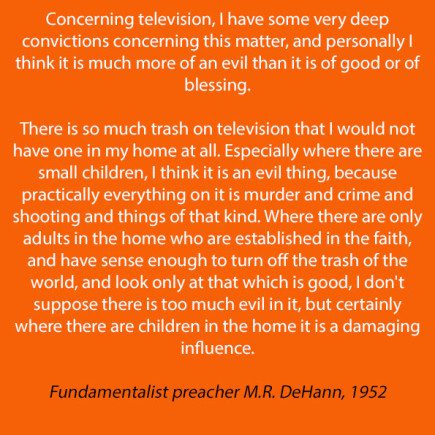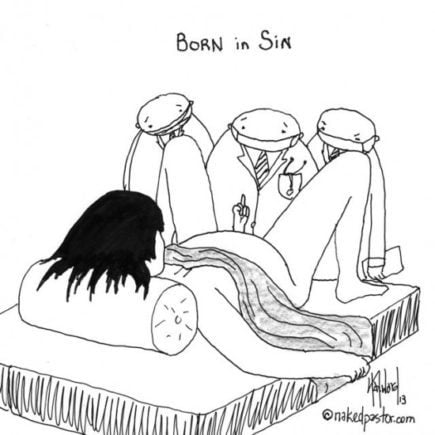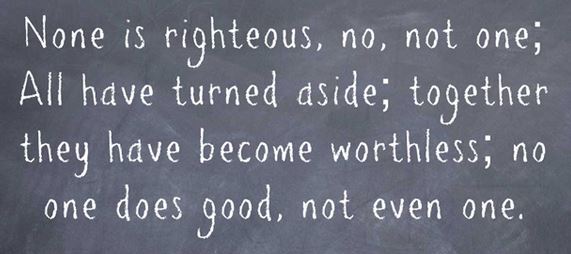
In the 1960s, my dad would drop my siblings and me off at the Bryan Theater so we could watch the 25-cent Saturday afternoon matinee. But somewhere in my primary school years, going to movies became unacceptable. I suspect that this was due to the Independent Fundamentalist Baptist (IFB) preaching my parents were hearing and absorbing at the time. From that point forward, outside of attending a drive-in movie one time at age 18 and taking two different girls on movie dates (Jaws and Willie Wonka and the Chocolate Factory), I didn’t go to a movie theater again until I was in my late 30s. As a Christian, I believed that going to or renting movies was supporting Hollywood, an institution that I considered a den of iniquity.
In the late 1990s, having become more “liberal” in my thinking, I decided it was time for the Gerencser family to go to a movie. When I told Polly that we were all going to the drive-in to see a movie, she was appalled. She literally thought that God was going to strike us dead. Well, here we are, all these years later, still among the living. Evidently, God didn’t seem to give a shit about us going to the drive-in. By the way, the first hardcore, violent, nudity-laden movie we saw? George of the Jungle! The Second? Air Bud.
I grew up in a home that always had a television. My Mom told me one time that American Bandstand was my babysitter. The first memory I have about television is watching the Beatles’ first appearance on The Ed Sullivan Show. I remember my dad coming home with what I later in life called the “poor man’s color TV.” It was a colored, plastic sheet that Dad taped to the TV screen. The top of the sheet was blue and the bottom was green. Supposedly, the screen was meant to simulate sky and grass. Dad wasn’t impressed, and we quickly went back to watching black-and-white TV. The Gerencser family didn’t own a color television until sometime in the 1970s.
My wife and I married in 1978. One of our first purchases was a used tube console color TV that we bought from Marv Hartman TV in Bryan, Ohio. We paid $125. We continued to watch TV for a few years, until one day I decided, under the leadership and conviction of the Holy Spirit, that watching TV was a sin. This was in the mid-1980s. After swearing off watching TV, I decided that no one, if he or she were a good Christian anyway, should be watching television. One Sunday, as pastor of Somerset Baptist Church in Mt Perry, Ohio, I preached a 90-minute sermon — you read that right, 90 minutes — on the evils of watching television and going to the movies. I called on all True Christians® to immediately get rid of their TVs and follow their preacher into the pure Christian air of a Hollywood-free world.
To prove my point, I gathered the congregation out in front of the church for a physical demonstration of my commitment to following the TV-hating Jesus. I put our 13-inch black and white TV in the churchyard and hit it several times with a sledgehammer, breaking the TV into a pile of electronic rubble. Like the record burnings of the 1970s, my act was meant to show that I was willing to do whatever it took to be an on-fire, sold-out follower of the King of Kings and Lord of Lords.

Just before I hit the TV with the sledgehammer, a church member by the name of Gary said to me, Hey preacher, if you don’t want that TV I’ll take it. How dare he ruin my sin-hating demonstration! I thought at the time. I gave Gary a scowling look and proceeded to knock the Devil right out of the TV. I am happy to report that not one church member followed in my TV-hating footsteps. What church members did was make sure that their televisions were OFF or covered with a towel when the man of God made an appearance at their home. That’s just how the game was and is played.
In the early 1990s, I would, from time to time, rent a television from a local rent-to-own business. Two times come to mind: the 1990 World Series and the 1991 Gulf War. Outside of that, our oldest three children grew up in a television-free home. They were teenagers: 18,16, and 13, before they watched TV (except for watching Saturday cartoons when they were little). Well, this isn’t entirely true. When they visited their grandparents, they were permitted to watch TV — even though I wasn’t happy about them doing so. Like Amish children, they were mesmerized by Disney movies and cartoons.
After our family attended their first movie, I decided I would buy a television, setting in motion seven years of what any competent psychologist would call bizarre, mentally imbalanced behavior. While what I am about to share will sound hilarious to those who never spent any time in Christian Fundamentalism, at the time; there was nothing humorous about my actions.

From 1998 through 2005, I purchased and got rid of at least six television sets. I gave one TV to the local crisis pregnancy center. I also gave one set to my son. The rest I sold at a loss. Why all the televisions? you might ask. Simple. After watching TV for a time, like a moth to a flame, I was drawn towards watching shows that I promised God I would never watch. Dear Lord, I promise I will only watch G- or PG-rated programming, and if there is any nudity, cursing, or gore I will immediately turn off the TV. No matter how much I wanted to be holy and righteous, I found that I loved watching programs that contained things that I considered sin.
My “sinning’ would go on for a few weeks or months until the guilt would become so great that I would say to God, you are right, Lord. This is sin. I will get rid of the TV and I promise to never, ever watch it again. Out the TV would go, but months later I would get the hankering to watch TV again and I would, unbeknownst to Polly, go buy a television.
I so wanted to be right with God and live a life untainted by the world, yet I loved to watch TV. One time, after I came to the decision to get rid of yet another TV, Polly arrived home from work and found me sitting on the steps of the porch, crying and despondent. I hated myself. I hated that I was so easily led astray by Satan. I hated that I was such a bad testimony. Look at ALL that Jesus did for me! Couldn’t I, at the very least, go without watching TV for the sake of the kingdom of God? Evidently not.
I have written before about my perfectionist tendencies. I wanted to be the perfect Christian. God’s Word said to abstain from the very appearance of evil. Psalm 101:3 was a driving force in my life:
I will set no wicked thing before mine eyes: I hate the work of them that turn aside; it shall not cleave to me.
Television was a wicked thing, I told myself, yet I continued to battle with my desire to watch sports and other programs on TV. Needless to say, the advent of the Internet brought into our home a new way for me to be tempted to sin against the thrice-holy God I pledged to serve, even unto death. I’m sure that my children will remember me putting a sign above our computer that quoted Psalm 101:3. This was meant as a reminder that we should NEVER view inappropriate, sinful things on the Internet. Needless to say, I know exactly how long it takes to look at a pornographic photo while on a dial-up connection. Way too long, by the way. 🙂
My three oldest children, now in their late 30s and 40s, continue to rib me about my TV-crazed days. One of them will periodically ask if I am ready to get rid of our flat-screen TV. Their good-natured ribbing hails back to the day when their dad acted like a psycho, buying and selling televisions. At the time, I am sure they thought I was crazy, and I wouldn’t blame them if they did.
Where was my partner, Polly in all of this, you ask? She was the dutiful, submissive wife who believed her God-called, on-fire, sold-out Christian pastor of a husband knew best. Polly rarely watched TV, so having one didn’t matter to her. I was the one who “needed” to watch TV. As I now psychoanalyze this period of my life, I think watching TV was my way of being “normal.” Serving a sin-hating God and preaching to others a rigid, inflexible morality meant that I had to live a Christ-honoring, sin-free life. Again, in light of the atoning work of Jesus on my behalf, I thought that forsaking the pleasure of the “world” was but a small price to pay for the forgiveness of sins and eternal life. Yet, I wanted to be like everyone else, so I would come home after a long day of studying for my sermons, visiting church members, and doing the work of the ministry, and leave God sitting on the front porch. Watching TV was my way of unwinding after working days which were often long and demanding. While I still was selective about what I watched, my attempts to avoid “sinful” viewing rarely kept me from watching whatever I wanted to watch, especially after the children went to bed. Over time, my guilt levels would increase, ultimately leading to the behaviors outlined in this post.
In 2006, two years before I deconverted, I finally put an end to my battle with the television. I decided, God be damned, I was going to own a TV and watch whatever I wanted to watch. From that point forward, we have owned a television. While I have continued to buy televisions, my purchases are driven by resolution, refresh rate, and screen size, and not the thought that God was going to strike me dead for seeing a naked man or woman on TV.
Several years ago, as we were watching an episode of True Blood, I turned to Polly and said, who would have thought that we would be sitting here watching bloody, naked vampires having sex? We laughed together, both grateful that the preacher had finally been delivered from the demon of TV.
Bruce Gerencser, 68, lives in rural Northwest Ohio with his wife of 47 years. He and his wife have six grown children and sixteen grandchildren. Bruce pastored Evangelical churches for twenty-five years in Ohio, Texas, and Michigan. Bruce left the ministry in 2005, and in 2008 he left Christianity. Bruce is now a humanist and an atheist.
Your comments are welcome and appreciated. All first-time comments are moderated. Please read the commenting rules before commenting.
You can email Bruce via the Contact Form.





